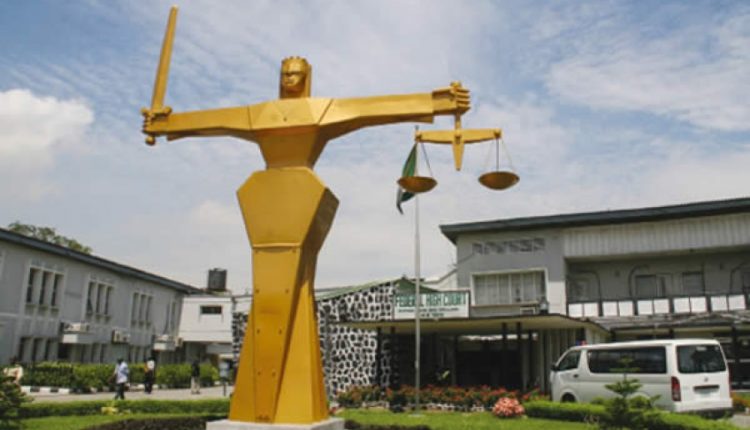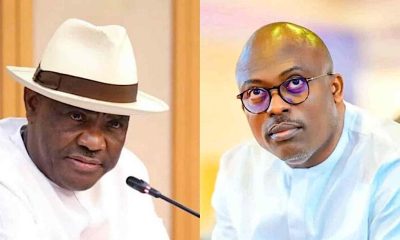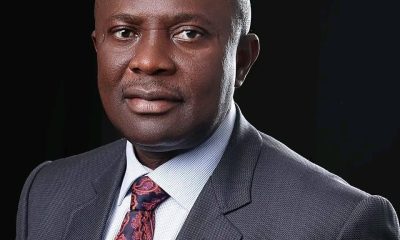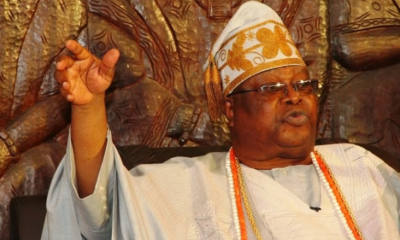In his decision, Justice Henry Njoku granted the duo’ s petitions and remanded the case to March 16 for a hearing on the motion on notice.
” It is hereby ordered as follows, ” he declared, ” an interim order of this honourable court for seven days (subject to renewal) is hereby given in light of the judgment in suit number.
HAB/13/22, a judgment in rem, was delivered on February 28, 2022, and takes precedence over any other judgment.
” As a result, the petitioners hereto, Engr David Nweze Umahi and Dr Eric Kelechi Igwe, shall stay in office as governor and deputy governor of Ebonyi state, respectively, and shall not be dismissed. ”
Meanwhile, Francis Nwifuru, the Speaker of the Ebonyi State House of Assembly, and 14 other members fired by the court on Thursday for defecting to the APC from the PDP expressed their displeasure with the decision.
ALSO READ: Has Nigerian Senate found her mojo?
Speaker Nwifuru and 14 other legislators’ seats were ruled vacant by Justice Inyang Ekwo of the Federal High Court in Abuja on Tuesday.
The judge directed INEC to hold a bye- election in the individual constituencies within 90 days to fill the vacant seats.
However, Nwifuru and the other 14 MPs told journalists that they had filed an appeal and a stay of execution against the judgment.
Nwifuru, on the other hand, stated that they will follow the ruling.
” We started hearing rumors approximately two days ago that a Federal High Court in Abuja had declared our seats empty because we defected from the PDP to the APC.
” I am aware of the position of the Federal Republic of Nigeria’ s constitution, but I am unaware of how the judiciary reads the law. ” That is something I am not opposed to.
” An appeal has been filed, as well as a stay of execution. There is no need to comment on the case because it is before a court of law. The law, in our opinion, will take its course. ” We’ re pleading with our constituents to follow the law, ” he said.
Special Responsilities Of Federal High Court And State Court
AdvertisementThe Federal High Court (Federal Revenue Court as it then was) was established by the Federal Revenue Act 1973 (1973 No. 13). The Court was renamed the ” Federal High Court” by Section 228 (1) and 230 (2) of the Constitution of the Federal Republic of Nigeria, 1979. It is essentially a Commercial Court
The Judges of the Federal High Court are appointed by the President on the recommendation of the National Judicial Council. The Federal High Court is headed by a Chief Judge. The Chief Judge is accountable to the Chief Justice of Nigeria and the National Judicial Council as the case may be.
The Federal High Court has extensive and exclusive jurisdiction in the handling of commercial matters as a court of first instance. The jurisdiction of the Federal High Court includes but not limited to: issues of revenue of the Government of the Federation, taxation of companies and bodies amenable to Federal taxation, matters connected to customs and excise, banking, banks and other financial institution, operation of the provisions of the Companies and Allied Matters Act, copyright, patent, designs, trademarks, industrial designs, admiralty jurisdiction, citizenship, intellectual property, immigration and emigration, aviation, arms and explosives, mines and minerals, drugs and poisons and the administration, management and control of the Federal Government of Nigeria or any of its agencies.
The jurisdiction of State High Courts in Nigeria is to be found in section 236(1) of the 1979 Constitution of the Federal Republic of Nigeria. The section provides: ” 236(1). Subject to the provisions of this constitution and in addition to such other jurisdiction as may be conferred upon it by law, the High Court of a State shall have unlimited jurisdiction to hear and determine any civil proceedings in which the existence or extent of a legal right, power, duty, liability, privilege, interest, obligation or claim is in issue or to hear and determine any criminal proceedings involving or relating ot any penalty, forfeiture, punishment or other liability in respect of an offence committed by any person. “


 Business4 days ago
Business4 days ago
 Latest1 week ago
Latest1 week ago
 Politics4 days ago
Politics4 days ago
 Featured4 days ago
Featured4 days ago
 Business4 days ago
Business4 days ago
 Business1 week ago
Business1 week ago
 Latest3 days ago
Latest3 days ago
 Energy1 week ago
Energy1 week ago



